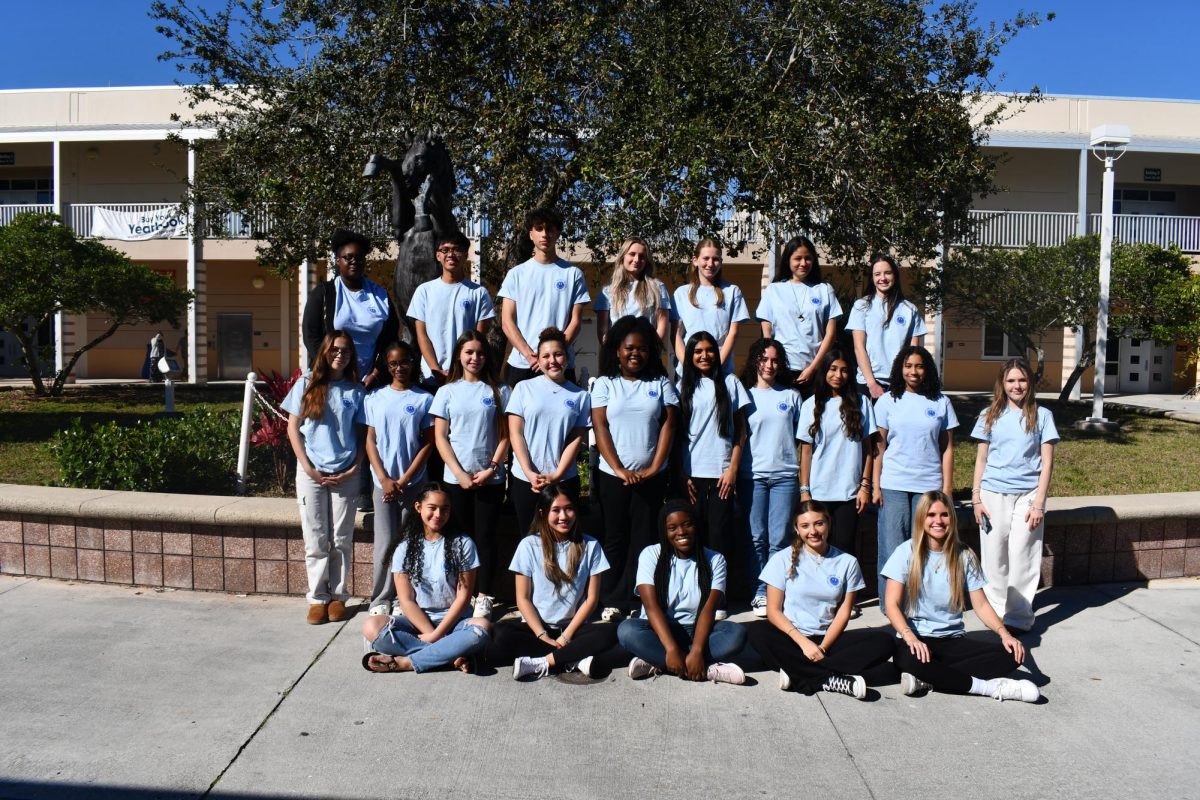Mega-Corporations in social movements walk tightrope between activism, slacktivism
May 20, 2021
Corporate social responsibility has pushed enterprises to speak out, especially on social media, about social issues. However, consumers have complained that some measures are nothing more than an “advertising gimmick” that is taking advantage of a movement. On the other side of the spectrum, some businesses that have spoken about controversial opinions about social movements have been met with controversy and boycotts.
The month of June: Pride month. Rows of rainbow t-shirts at Target, sneakers from Adidas, bracelets from Hot Topic flood stores and websites. Come July? Pride merch is taken down and put in storage to make way for the holiday fanfare, but what happened to their overwhelming support?
Slacktivism, which the United Nations has defined as people or businesses “supporting(ing) a cause by performing simple measures,” has been said to be actions by corporations and influencers with little risk and little impact. This is what happens when businesses want to show support but minimize their effort to not create a long-term boycott situation.
“I don’t particularly like these kinds of companies because they’re only doing it to make themselves look good rather than trying to help a community,” explained junior Arunima Deogade. “Honestly, these companies will only show their support when it’s a certain month and then it’ll be forgotten about for the rest of the year.”
One of the most common examples involves “symbolic” support for the LGBTQ+ community during Pride Month. This act, known as “rainbow washing,” is seen as an opportunistic version of support of Pride that puts the brand before the movement. An example that garnered controversy was when the company Adidas set up a “Pride” section on their website, but also became a major sponsor of the World Cup in Russia, a country with laws that discriminate against LGBTQ+ individuals.
Others argue that corporate support, even if it is considered “pandering” and mainly done to appease their demographic, can still show how certain social movements have progressed forward in the eyes of mainstream business. With the purchasing power of the LGBTQ+ community reaching $1 Trillion in 2016 and research from Mintel Reports showing that over 50 percent of Americans stop buying from brands they find unethical, it may be considered a win-win to create “buying loyalty” and to support certain programs and charities.
The issue spans to social movements outside of Pride. For instance, a similar case of performative activism from companies is “pinkwashing,” which is when a company changes some of its product or messaging to a “pink version,” or adds a pink ribbon to show Breast Cancer awareness but keeps its involvement with charities vague. A similar product of this comes from “greenwashing,” where a company markets their brand or product as vastly more environmentally friendly than it actually is. Companies such as Tide and Windex have even been taken to court on these misleading advertisements.
More recently, corporations received backlash for their remarks and social media posts showing support of the Black Lives Matter movement through the posts of black squares and messages of solidarity, but are otherwise hypocritical in doing little to combat their own internal lack of workplace diversity. Some corporate acts, such as the infamous 2017 Pepsi ad involving Kendall Jenner, have even gone as far as having been seen as “counteracting” discussion of the issue of police brutality.
“Obviously, the Pepsi ad was insensitive, but it also highlights how when corporations are talking about social movements they use celebrities,” said junior Etasha Shah. “Instead they should focus more on the people that it’s affecting.”
While some corporations may edge on the side of “performative,” there are also instances of businesses upholding their social responsibility in a way that appeased and have even been praised by customers. An instance is when EA Games donated $1 million to systemic injustices organizations in 2020 and delayed the release of Madden NFL 21 to “keep attention on the wave of Black Lives Matter protests. Around the same time, Ben and Jerry’s ice cream promoted a bold message that stated “We Must Dismantle White Supremacy: Silence Is NOT An Option,” followed by “four steps” drafted with the NAACP and Color of Change. Supporters pointed out that they believe that the company has put direct measures in place instead of simply marketing their brand in a way that appeals to their demographic.
“Companies have to actually, truly, be ready and willing to address their impact.” Explained Rashad Robinson, the Executive Director of Color of Change when referring to Ben and Jerry’s activism. “And that doesn’t happen overnight.”
On the other hand, corporate social responsibility when speaking about significantly “polarizing topics” can sometimes put the business in more harm than ever considered, and even lead to massive consumer boycotts. For example, the pillow company MyPillow and Goya Foods triggered a consumer boycott when CEO Mike Lindell and CEO Robert Unanue falsely accused the 2020 election as illegitimate. These lead to the MyPillow being dumped by retailers such as Mattress Firm and Bed Bath & Beyond, and Goya being berated on social media. The League of United Latin American Citizens (LULAC) even called Robert Unanue’s accusation as “disrespectful to the workers and consumers who buy Goya Foods products.”
A Lending Tree survey showed that 38% of those asked were involved in boycotting something. However, some doubt the ability of boycotts to produce results. When the company Chick-Fil-A faced backlash for funding anti-LGBTQ+ charities, counter-protests supporting the restaurant helped make sales rise up to $4.6 billion. On top of that, people seem to be uncertain if they should personally boycott, even if they feel strongly against the words or actions of a business.
“People that don’t agree with what they are promoting still do eat at the store. So really that counteracts the people that are boycotting and doesn’t change anything,” said Shah. “Boycotts need to be done in solidarity for it to be successful.”
To learn more, please visit:
https://nonprofithub.org/social-media/what-is-slacktivism-does-it-help/
https://www.prforpeople.com/news/politics/what-true-activism



